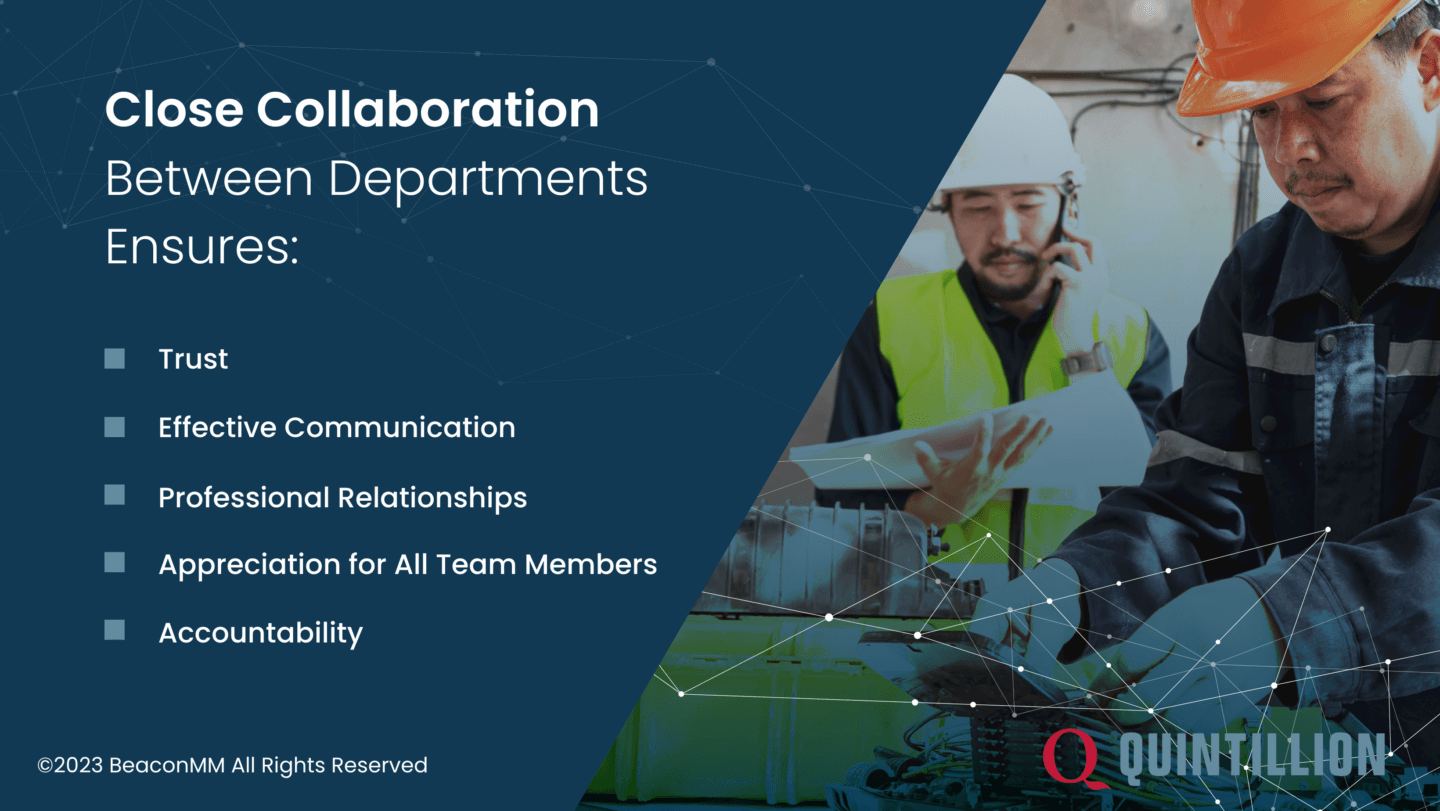In today’s world, the internet has become an essential part of our lives. With the growing use of broadband services, the broadband industry has become a crucial part of the economy – offering services that provide high-speed internet access to customers, including cable, fiber-optic, and wireless technologies. The broadband industry isn’t simply operating on its own. In fact, there are huge investments taking place, having the right teams behind you for support are essential for productivity as well as ethical business management.
Accounting is one of the vital teams in the broadband industry for various reasons. Many broadband service providers require massive amounts of funding. Being able to understand business accounting metrics within this industry is essential for successful operations to continue uninterrupted.
Here at Quintillion, we know the importance of having a functional and optimized accounting process. In this blog, we will discuss the importance of accounting in the broadband industry.
Why We Need Accounting in the Broadband Industry
The broadband industry generates revenue by providing high-speed internet services to customers. The accounting department plays a vital role in revenue management by analyzing revenue streams, forecasting revenue, and identifying revenue opportunities. This helps the company to make informed decisions about pricing strategies, product offerings, and marketing campaigns.
At Quintillion, our highly functioning accounting department helps track income and expenditure. We also ensure regulatory compliance and provide our investors and management teams with quantitative financial data that we use when making calculated business decisions.
Compliance With Relevant Regulations and Laws in the Broadband Industry
It’s no secret that laws and regulations vary widely from state to state. This is why proper accounting processes are essential for operating in line with all regulatory agencies.
According to Quintillion’s Senior Accountant Katherine Belden, “The great thing about Quintillion is that we have strict standards and internal approval processes. Anytime an item affects cash or assets, we make sure that multiple people are involved in the process so that there is no room for fraudulent activity or coercion of any kind.”
In addition to having internal controls and separation of duties, holding periodic reviews are extremely important for keeping our financial health in check and ensuring that we are compliant across all channels.
Belden explains, “We also perform several reviews. Each Manager is responsible for his or her budget to ensure that we’re compliant with all laws and regulations.”
Departmental Collaboration Ensures Accurate Financial Reporting, and Trust

In any industry, communication and collaboration within a business nurture trust and camaraderie. These are the building blocks for the close personal working relationships that we at Quintillion stand behind.
Belden notes, “Since Quintillion is very small, each department, and each person, is specialized in what they do. It’s really cool to walk into the engineering department and any of the engineers can tell you what is going on with a circuit or with what is being built. At the same time, you can walk over to the marketing department and see that they all have a valuable relationship with each of our customers. The same goes for the accounting department. We are constantly collaborating with other departments to stay in the loop and to hold one another accountable.”
Collaboration and trust in each other, as well as holding each other accountable, allows our business team to focus on the work that we love, and the work that Alaska and remote regions of the Arctic depend on. This collaboration is found in all departments, and we rely on it to ensure that our entire company is in sync.
Katherine Belden affirms, “The accounting team keeps track of each department’s budget in terms of cost and revenue streams. We know that if there is a variance anywhere, we are going to be given an in-depth explanation because of our close-knit, collaborative relationship.”
Emerging Trends in the Broadband Industry that Impact Accounting Practices
The broadband industry is undergoing constant change. As our technology becomes exponentially more powerful from one year to the next, being successful in this industry is contingent upon keeping up with current trends, as well as understanding the equipment and how it’s utilized. This knowledge is just as valuable to our engineers as it is to our accounting team.
Katherine explains, “There are strict regulations that we have to follow to stay compliant with GAAP (Generally Accepted Accounting Principles). One way we ensure we are following all laws and regulations is to undergo an audit from an outside firm. We just finished our annual audit where we do an in-depth review of our financial statements. In order to keep up with emerging trends is to not only know the language in the broadband industry, but emerging technologies, the cost of items we use, and what type of equipment we purchase relevant to our services.”
General knowledge of emerging trends is a vital asset in our industry, just as continued education and professional development play a valuable role.
Belden notes, “We undergo ongoing training to ensure adequate professional development is being offered for every employee. Keeping up with training ensures that we’re educated in the necessary changes that are happening – many of which might be regulatory – so that we remain compliant and properly engaged with all changes happening in the industry.”
The Importance of Funding for Middle-Mile Projects and the Impact on Alaskan Communities
Here in Alaska, a huge part of our mission at Quintillion is to offer broadband services to unserved and underserved regions of our state. Currently, there are hundreds of remote villages that either have poor internet service or no service at all. We are working with several entities in order to bridge the digital divide in these unserved and underserved areas.
“What I love about Quintillion is that we put Alaska first and we’re focused on what we can offer for Alaskan communities. We have participated in multiple outreaches in villages and rural communities and are working to bring broadband to unserved communities, hospitals, and schools. Having affordable Internet is huge for Alaskan communities, and doing what’s best for Alaska is really the end goal.”
At Quintillion, we know that bridging the digital divide in remote Alaska is a huge feat. But with our close-knit family and our professional direction, we’re aiming to offer greater infrastructure to Alaskan communities that depend on broadband services.
Broadband and Accounting: What’s Next?
The broadband industry is continuously changing. Staying up to date on all aspects of our industry is a huge part of our job – and this includes our accounting team.
While Quintillion Senior Accountant Katherine Belden says that the everyday job of accounting is largely the same no matter what industry you’re in, she also offers some valuable insight for anyone who might be interested in pursuing an accounting career in the ever-changing broadband industry.
Katherine states, “The biggest thing anyone interested in the broadband industry could do would be to learn the language in the telecommunications industry. It can be confusing to talk about revenue without knowing the terminology. You should do research on what type of equipment is out there related to broadband infrastructure in order to understand the costs associated with purchasing. Making sure you’re up to date on the nomenclature and metrics associated is also really helpful for anyone wanting to enter this specific field.”
Are you interested in learning more about how accounting in the broadband industry is a vital asset? Reach out to Quintillion today and talk with one of our professionals.
















